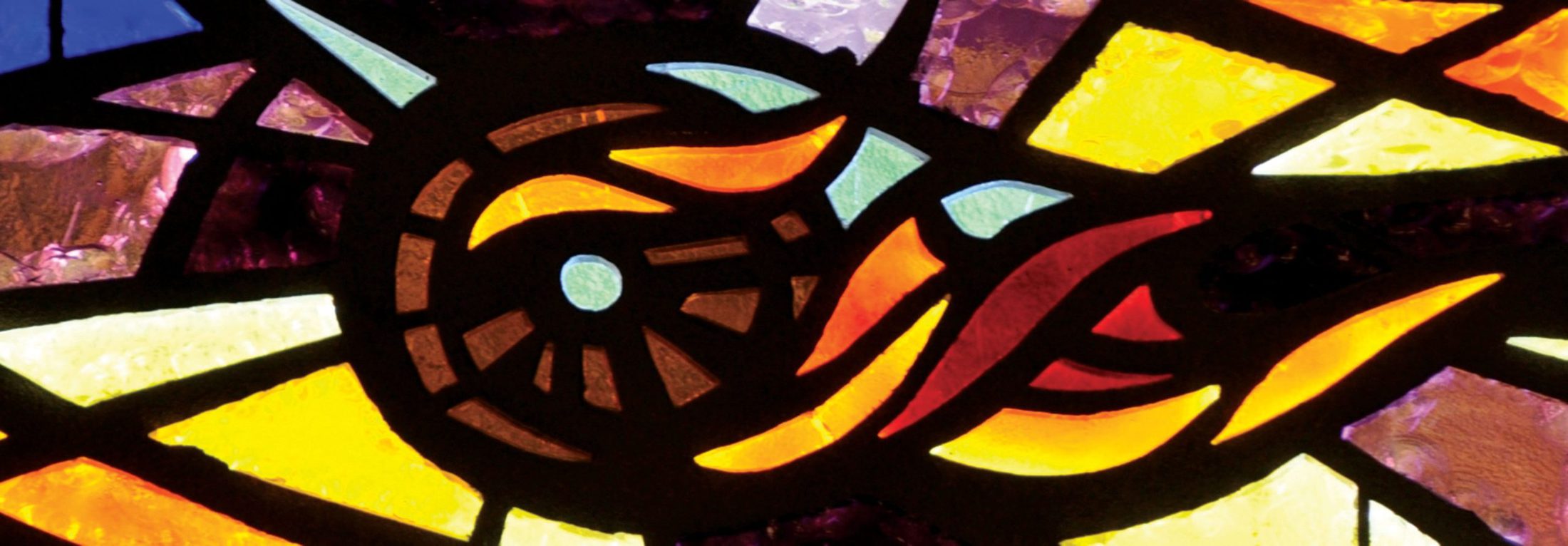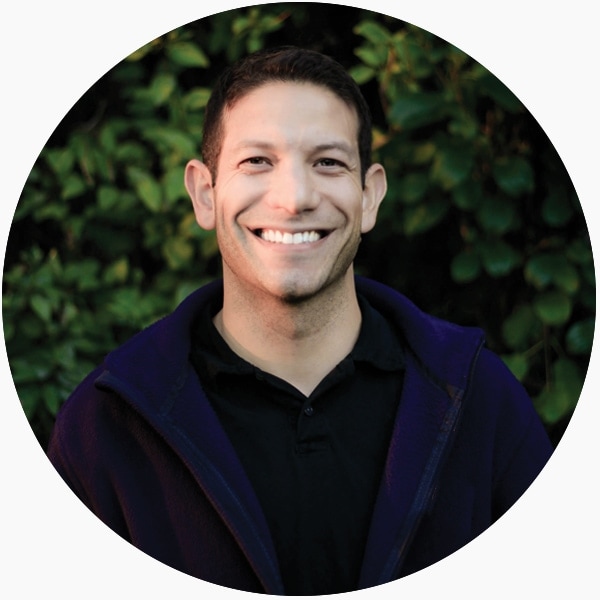The Hope of Pentecost Amid My Brokenness and Doubt
June 3, 2019
A year and a half out of seminary, I had just accepted my first call. The invitation to serve as lead pastor at Northbrook (Illinois) Covenant Church was a privilege, and I was deeply grateful for that gift. But I didn’t feel the excitement I’d anticipated. Instead, I felt terror.
When I told my seminary mentors how I was feeling, the consensus was that not only were my emotions natural, but they would have been concerned if I didn’t feel at least a little scared.
I wished I were just “a little scared.”
To be honest, I hadn’t even planned to seek a call for lead pastor. Perhaps that would be further down the road for me, but I wasn’t in a place that felt exactly spiritually idyllic. I was wrestling with questions, lingering doubts, and the all too annoying presence of my brokenness.
Nonetheless I encountered a few important realities during the interview process that helped me to move forward. In conversation with mentors, peers, and the search committee, I could see God’s presence in the midst of this process. Throughout the interviews and candidating, I encountered a beautiful community of people who took Jesus seriously and moved prayerfully, and who welcomed me as if I had already been there for years. Further, my wife and I could not ignore the details around the timing, location, and context of the role. I’m not sure what else we could have asked for.
Still, once I started I could see why the absence of fear might be cause for concern. So many things seemed to be out of my hands. Even if I did everything right (whatever that meant), I could fail (whatever that meant). It became apparent that to be fruitful as a pastor—just as in any ministry role—my own efforts would not be enough.
Pentecost tells us that the Holy Spirit
changes reality as we know and see it.
I love this Covenant affirmation: “We affirm a conscious dependence on the Holy Spirit.” But at times I’ve struggled to understand what it really means. We depend on air to breathe, but that’s not a conscious dependence. Whether or not I think about it doesn’t determine whether I breathe. How is my behavior different because I depend on the Holy Spirit? And as a church, what are we doing differently than any other organizations because we depend on the Holy Spirit?
I notice two things in the story of Pentecost. When the Holy Spirit comes upon the gathered believers, the Spirit makes the impossible happen, and the Spirit empowers human efforts. The believers speak in such a way that Jews in Jerusalem, who come from all over the Roman Empire, understand them in their mother tongues, not a lingua franca. The phenomenon naturally gets people’s attention and is an effective testimony to the new reality on this side of the death, resurrection, and ascension of Jesus Christ.
The people speaking are some of the same ones who had locked themselves away in fear after Jesus was killed. Just a few weeks earlier Peter had been afraid to admit he even knew Jesus. Now he addresses the crowd and preaches the sermon of a lifetime. He explains what’s happening, declares that Jesus is both Lord and Messiah, and calls his listeners to repent and be baptized in the name of Jesus Christ—an altar call if anyone ever heard one!
What happened to those fearful disciples? The Holy Spirit happened. The Holy Spirit transformed a group of frightened followers of Jesus into bold declarers of the wonders of God. Before his death, Jesus had promised them a Comforter: “The Advocate, the Holy Spirit, whom the Father will send in my name, will teach you everything, and remind you of all that I have said to you” (John 14:26). And in fact, the Holy Spirit took Peter and transformed him into an altar-call preacher and leader. The terror and brokenness of Good Friday was shattered by the hope of Easter Sunday—and then transformed into power to witness, preach, and do ministry on Pentecost. Is it any wonder Jesus told them to wait for this?
More than empowering their efforts, the impossible happened: the disciples speak in languages they don’t know. Three thousand people answer Peter’s call. (Maybe I’m just envious, but have you ever heard a sermon that good?) And that’s just the beginning. Around the corner Peter and John heal a paralyzed man. Ananias is led by a vision to Saul. Peter’s vision prepares him to meet Cornelius. Philip is led to witness to the Ethiopian (and then teleported!). Again and again, the Spirit is doing things that the disciples simply could not do on their own.
When and how does the Spirit accomplish these things? There is always an element of mystery in how God works. But we also see people seeking God in Acts—a lot. This happens particularly through prayer and fasting. Saul fasts after encountering Jesus on the road to Damascus. Peter is praying when he receives his vision. He is released from prison as the believers pray. Barnabas and Saul are sent off to a fruitful mission journey with prayer and fasting. The chains fall off of Paul (formerly Saul) and Silas as they worship, and their jailer comes to faith. The disciples seek God, and God does the impossible. It makes sense because seeking God is an end to itself. How much more should it be the starting point to leading others to him!
The Holy Spirit’s work in the disciples on Pentecost offers hope to broken vessels like me. This account reminds me that God will work through me, often in spite of me.
But Pentecost also challenges me to seek the impossible well beyond myself. That leads me to ask, what impossible things am I seeking? Am I putting myself in a position for God to do the impossible, or am I settling to work toward and pray for things within striking distance of my own abilities?
I love this Covenant affirmation:
“We affirm a conscious dependence on the Holy Spirit.”
Pentecost reminds me not to settle for the invisible ethereal aspects of the Spirit’s work. Pentecost—and the shockwaves it sends throughout the book of Acts—tells us that the Holy Spirit changes reality as we know and see it. The sick are healed, people come to faith, knowledge is received, divine appointments are arranged, prisoners are released.
I need to depend on the Spirit—not the way I depend on air while sitting on a park bench reading a book. While it’s true that the Spirit is moving in the world in daily ways, in fact, I need to depend on the Spirit the way I depend on air after jumping into deep water—scrambling to the surface to reach what I need to live. Do I pray like my life depends on it, because ministry does? I don’t want everyday realities to keep me from seeking miracles.
Pentecost also shows me that it’s not about me. The Spirit is at work all over the community of believers. Recognizing that reality helped me find peace as I stepped into my current role. I took comfort in coming into a congregation full of Spirit-led, Spirit-empowered believers where the Holy Spirit had been at work for decades. Being a recipient of their ministries went a long way toward bringing me peace. It helped me see
that I’m just another character in a much grander story.
It’s not that I don’t worry about the challenges from time to time, or that I don’t wrestle with the anxieties of ministry. But today, as I anticipate Pentecost, I choose to set aside my fears to join God in the life-giving work God wants to do.














